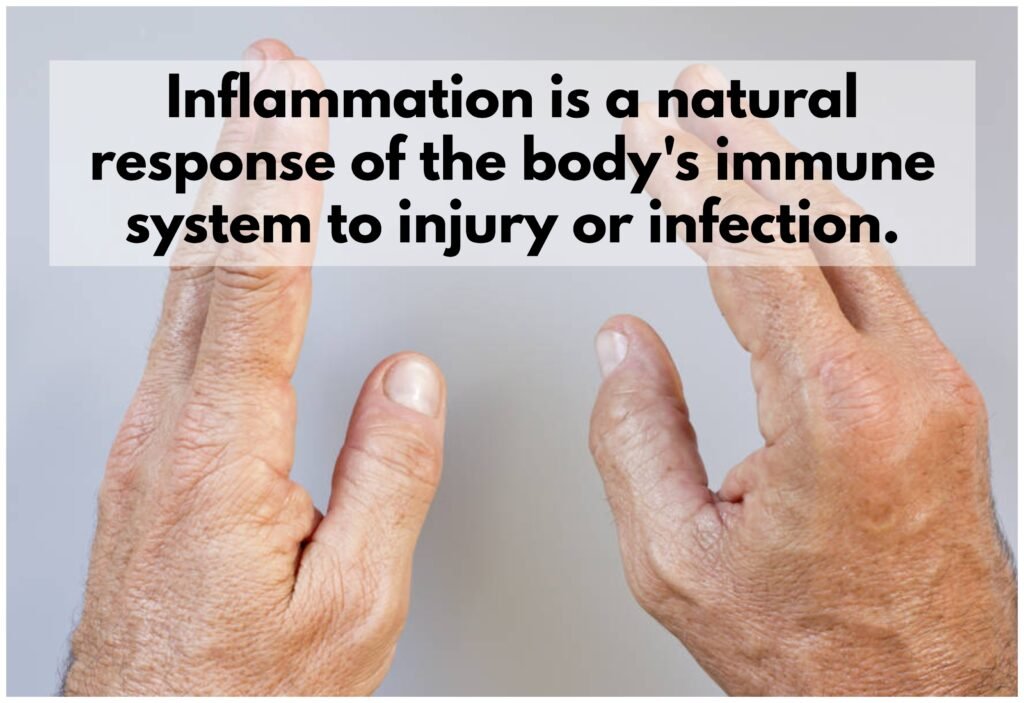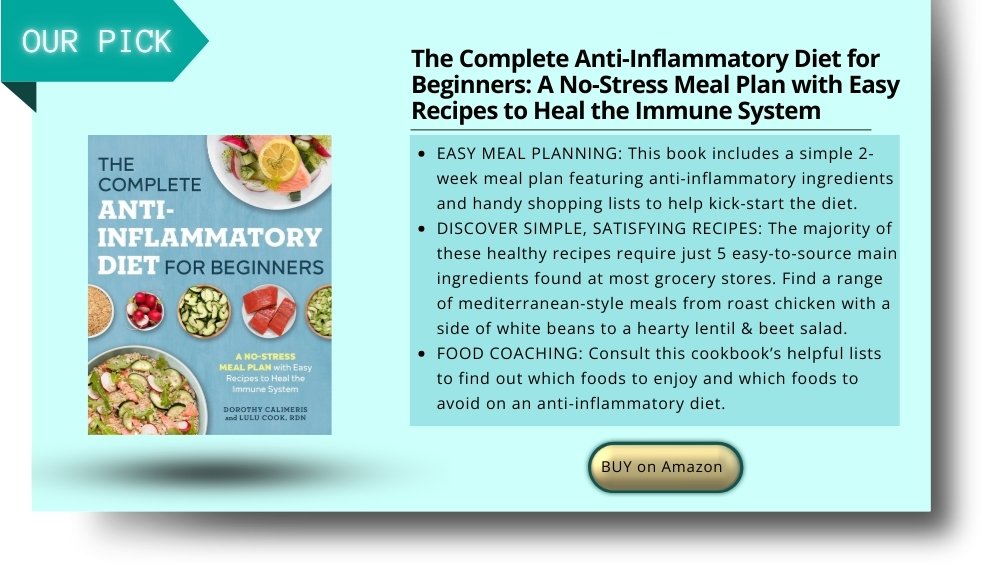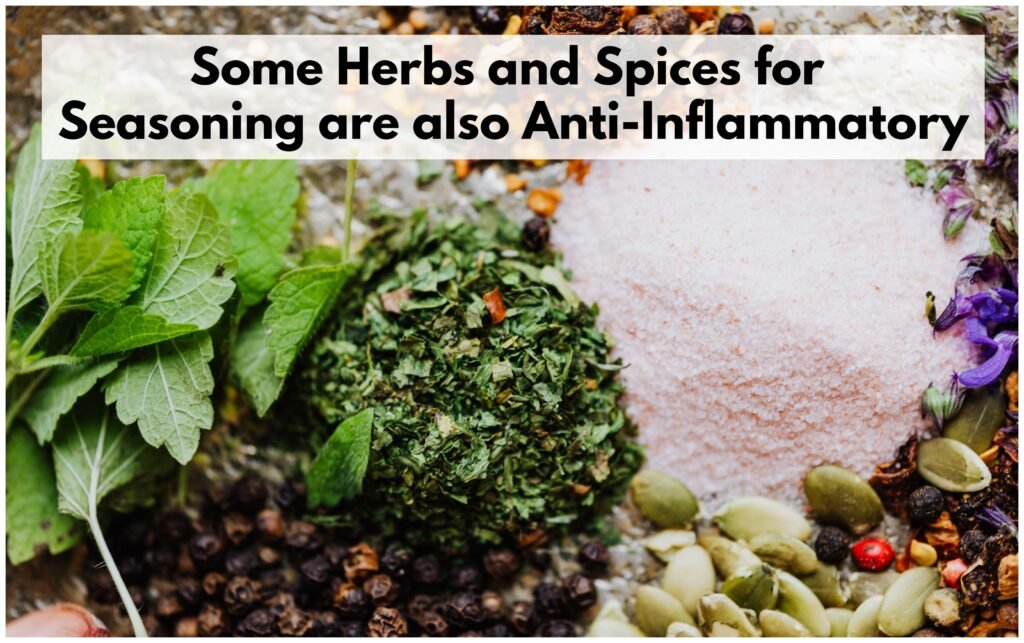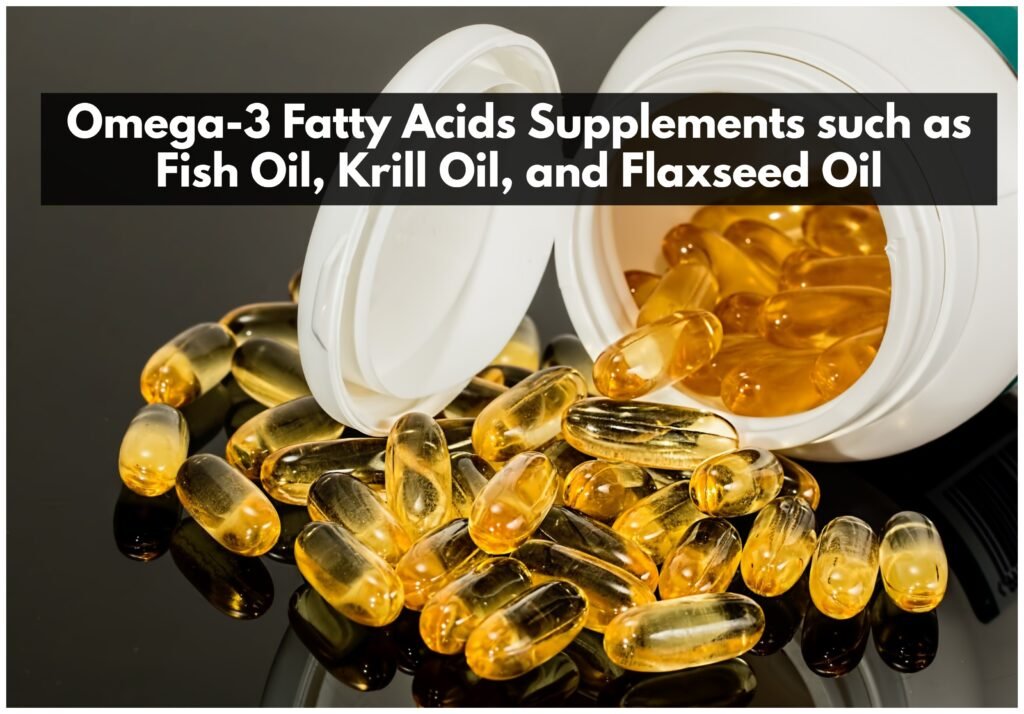Last Updated on June 27, 2025 by Julian Espinosa
Are you experiencing more aches and pains than you used to? You’re not alone – and there’s a scientific reason behind it. As we mature, our bodies naturally develop what researchers call “inflammaging” – a low-grade, chronic inflammation that becomes more common after age 65. While this might sound concerning, here’s the empowering truth: you have significant control over managing this process through your daily food choices.
Recent research shows that chronic inflammation is a hallmark of aging that affects virtually all mature adults, but it doesn’t have to dictate your quality of life. The foods you choose can fuel inflammation or help your body fight it naturally. Think of your kitchen as your pharmacy – stocked with powerful anti-inflammatory medicines disguised as delicious meals.
In this comprehensive guide, you’ll discover which everyday foods can help reduce inflammation and which might work against you. We’ll explore the Mediterranean diet approach scientifically proven to lower inflammatory markers, share specific recipes and meal planning strategies, and provide practical tips for making sustainable changes that fit your lifestyle.
You’ll also learn about targeted supplements that can support your anti-inflammatory goals, understand how to work with healthcare professionals to create a personalized nutrition plan, and discover simple lifestyle modifications that amplify the benefits of good nutrition. Ready to take control of inflammation and feel your best? Let’s dive into the science-backed strategies to help you thrive during retirement.
Everything You Need to Know About Inflammation in Aging?
This blog post will provide a guide to anti-inflammatory nutrition for seniors and tips and advice on making dietary changes to reduce inflammation and improve overall health.
By understanding the sources of inflammation in aging, the foods and nutrients that can reduce it, and the lifestyle changes that can help, aging adults can make the dietary changes necessary to reduce it and improve their overall health and well-being.
Prefer to listen rather than read?
Understanding the Aging Process
Aging is a natural, gradual process that brings wisdom, experience, and yes – some physical changes too. One of the most significant changes that occurs as we mature is the development of chronic, low-grade inflammation throughout the body. Scientists have coined the term “inflammaging” to describe this phenomenon, which is now recognized as a hallmark of aging that affects most individuals over 65.

But what exactly is happening in your body? As we age, our immune system undergoes changes characterized by decreased production of new immune cells, accumulated stress from fighting infections throughout our lifetime, and the development of senescent cells that secrete inflammatory compounds. It’s like having a car alarm that occasionally goes off when there’s no real threat – your body’s inflammatory response becomes somewhat overactive.
The aging process affects multiple body systems simultaneously. Your metabolism naturally slows, making it harder to process foods efficiently. Hormone production decreases, affecting everything from muscle mass to bone density. Meanwhile, years of environmental exposure to pollutants, stress, and dietary factors can accumulate, contributing to this inflammatory state.

Recent breakthrough research from the University of Virginia has revealed that mitochondria in immune cells lose their ability to properly process calcium as we age, leading to the chronic inflammation responsible for many age-related health concerns. This discovery is exciting because it points toward specific interventions that might help manage inflammaging more effectively.
Inflammation is a natural response of the body’s immune system to injury or infection. It is characterized by the release of pro-inflammatory compounds, such as cytokines, leukotrienes, and prostaglandins, which protect the body from harm and promote healing.
How Inflammation Can Impact Health in Aging Adults
Chronic inflammation doesn’t announce itself with obvious symptoms like an acute injury would. Instead, it works quietly in the background, potentially contributing to various health challenges that become more common as we mature. You might notice increased joint stiffness, longer recovery times from minor injuries, or simply feeling less energetic than you used to.
Research shows that inflammaging carries high susceptibility to chronic conditions, disability, frailty, and affects overall longevity. The inflammatory molecules circulating in your bloodstream can affect multiple organ systems, potentially contributing to cardiovascular concerns, metabolic changes, and even cognitive shifts.

Think of chronic inflammation as similar to having a small fire burning continuously in your body. While it might not cause immediate damage, over time it can affect the normal functioning of your organs and tissues. This is why managing inflammation through nutrition becomes increasingly important as we age – it’s one of the most powerful tools you have to influence your health trajectory.
The good news? Research indicates that environmental factors, including diet, have lasting effects on inflammation regulation, meaning the choices you make today can significantly impact your wellbeing.
Nutrition-Focused Anti-Inflammatory Strategies
Your daily food choices represent one of the most powerful tools available for managing inflammation. Every meal is an opportunity to either fuel inflammatory processes or provide your body with compounds that naturally reduce inflammation. The Mediterranean diet, which emphasizes fruits, vegetables, nuts, whole grains, fish, and healthy oils, has been consistently shown to reduce inflammatory markers and improve overall health outcomes.
Anti-inflammatory nutrition works through several mechanisms. Certain foods contain compounds called polyphenols, which act like nature’s own anti-inflammatory medications. Others provide omega-3 fatty acids that help balance your body’s inflammatory response. Fiber-rich foods support beneficial gut bacteria, which play a crucial role in immune system regulation.
The beauty of this approach is that you don’t need to follow a restrictive diet or eliminate entire food groups. Instead, focus on gradually increasing the proportion of anti-inflammatory foods in your meals while reducing those that promote inflammation. Small, consistent changes often lead to the most sustainable and significant improvements.

Reducing Pro-Inflammatory Foods
Reducing pro-inflammatory foods is one of the most important steps in anti-inflammatory nutrition for seniors’ diet plans. This is due to the fact that certain foods can induce inflammation, exacerbating existing conditions such as joint pain, arthritis, heart disease, and other chronic diseases.
The more inflammation present in the body, the more likely it is to cause further damage. That is why reducing the intake of pro-inflammatory foods is key in any diet plan aimed at helping seniors manage chronic conditions and maximize their health.
What are these pro-inflammatory foods?
Understanding which foods can increase inflammation helps you make informed choices without feeling deprived. These foods don’t need to be completely eliminated, but reducing their frequency can make a meaningful difference in how you feel.
Refined Sugars
Refined sugars found in pastries, sodas, and processed foods cause rapid spikes in blood sugar, triggering inflammatory responses. Simple carbohydrates like white bread, white rice, and regular pasta are quickly broken down into glucose, creating similar effects. Consider gradually replacing these with whole grain alternatives that provide steady energy without the inflammatory spike.
High Levels of Saturated and Trans Fat
Packaged foods often contain preservatives, artificial additives, and unhealthy fats that can promote inflammation. Trans fats, found in some margarines and processed baked goods, are particularly problematic. Reading ingredient labels becomes your superpower – look for foods with fewer, recognizable ingredients.
While some saturated fat is normal in a healthy diet, excessive amounts from fried foods, fatty cuts of meat, and full-fat dairy products can contribute to inflammation. Balance is key – you don’t need to eliminate these foods entirely, but moderate portions work best.
Processed Foods
- Processed foods have been linked to increased inflammation in the body due to the high content of refined carbohydrates, trans fats, and sodium.
- Examples of processed foods are:
- Canned Vegetables
- Refined Grains
- Frozen Dinners
- Pre-made Sauces and Dressings
Simple Carbohydrates
- Sugar is a simple carbohydrate that is quickly broken down by the body into glucose, which can spike blood sugar levels and cause inflammation.
- Examples are:
- Sugar
- White Bread
- White Rice
- Saturated Fruit Juice
- Pasta
Limiting or eliminating foods that can trigger inflammation in aging adults is crucial.
Increasing Anti-Inflammatory Foods
Now for the exciting part – the foods that can help your body fight inflammation naturally! These nutritional powerhouses don’t just reduce inflammation; they provide essential nutrients that support overall health and vitality.

Examples of anti-inflammatory foods include:
Colorful Fruits: Nature’s Medicine Cabinet
- Berries are inflammation-fighting champions. Blueberries, strawberries, blackberries, and cranberries contain anthocyanins – compounds that give them their vibrant colors and powerful anti-inflammatory properties. A handful of berries in your morning yogurt or oatmeal provides a delicious dose of natural medicine.
- Citrus fruits like oranges, lemons, and grapefruits offer vitamin C and flavonoids that support immune function while reducing inflammatory markers. The pectin in citrus fruits also supports digestive health, which is closely linked to inflammation control.
- Apples provide quercetin, a natural antihistamine and anti-inflammatory compound. The old saying “an apple a day keeps the doctor away” has real scientific backing! The fiber in apples also feeds beneficial gut bacteria that help regulate immune function.

Leafy Greens: Nutritional Powerhouses
- Spinach, kale, and Swiss chard are loaded with vitamins A, C, and K, plus minerals like magnesium that support muscle and nerve function. These greens also contain lutein and zeaxanthin, which support eye health – particularly important as we age. Try adding a handful of greens to smoothies, soups, or sauces for an easy nutrition boost.

Fatty Fish: Omega-3 Superstars
- Salmon, mackerel, sardines, and trout provide EPA and DHA omega-3 fatty acids that are among the most potent natural anti-inflammatory compounds available. These healthy fats also support brain health, heart function, and may help maintain cognitive sharpness. Aim for two servings of fatty fish per week, or consider a high-quality fish oil supplement if you don’t enjoy fish.
Nuts and Seeds: Portable Nutrition
- Walnuts, almonds, chia seeds, and flaxseeds provide healthy fats, protein, and fiber. Walnuts are particularly rich in alpha-linolenic acid, a plant-based omega-3 fatty acid. A small handful makes a perfect snack that helps stabilize blood sugar while providing anti-inflammatory benefits.
Herbs and Spices: Flavor with Function
- Turmeric contains curcumin, one of the most studied anti-inflammatory compounds. Adding a pinch to soups, rice dishes, or even golden milk lattes provides both flavor and health benefits. Ginger offers similar anti-inflammatory properties and can help with digestion. Garlic and onions provide sulfur compounds that support detoxification and reduce inflammation.

The Mediterranean Diet Approach
The Mediterranean diet has emerged as the gold standard for anti-inflammatory eating, emphasizing whole foods, healthy fats, and minimal processing. This isn’t a restrictive diet but rather a enjoyable way of eating that happens to be incredibly healthy.
The foundation includes:
- Daily servings of vegetables, fruits, whole grains, and legumes
- Regular inclusion of nuts, seeds, and olive oil
- Fish and seafood several times per week
- Moderate amounts of poultry and eggs
- Limited red meat and processed foods
- Optional moderate wine consumption (consult your doctor)
What makes this approach particularly suitable for mature adults is its flexibility and emphasis on foods that are both nutritious and satisfying. You’re not counting calories or measuring portions obsessively – instead, you’re focusing on food quality and natural, whole ingredients.
Supplements to Help With Inflammation in Aging
While food should always be your primary source of nutrition, certain supplements can provide additional support for managing inflammation, especially when dietary intake might be insufficient.
Omega-3 Fatty Acids
If you don’t eat fatty fish regularly, a high-quality fish oil, krill oil, or algae-based omega-3 supplement can help ensure adequate intake of EPA and DHA. Look for supplements that have been third-party tested for purity and potency.
Turmeric Supplements
Curcumin supplements provide concentrated amounts of turmeric’s active compound. Look for formulations that include black pepper extract (piperine) or are combined with fats to improve absorption. Start with lower doses and gradually increase as tolerated.
Ginger Supplements
If you’re looking for a quick and easy way to get your ginger fix, ginger capsules are the way to go. With a concentrated dose of ginger extract, these little powerhouses pack a serious punch. Just be sure to choose a high-quality supplement from a reputable brand to ensure that you’re getting the best possible benefits.
For those who prefer a more natural approach, ginger tea is a fantastic option. Simply boil some water and add slices of fresh ginger root for a delicious and healthy beverage. And if you’re feeling adventurous, try adding some lemon, honey, or turmeric for an extra boost of flavour and wellness.
Vitamin D
Many mature adults have insufficient vitamin D levels, which can contribute to inflammation. Your doctor can test your blood levels and recommend appropriate supplementation if needed. Vitamin D works synergistically with other nutrients to support immune function.
Probiotics
A healthy gut microbiome plays a crucial role in inflammation control. Probiotic supplements or fermented foods like yogurt, kefir, sauerkraut, and kimchi can help maintain beneficial bacteria balance.

Coenzyme Q10
As we age, our body’s natural production of CoQ10 decreases. This antioxidant compound supports cellular energy production and may help reduce oxidative stress that contributes to inflammation.
Important note: Always consult with your healthcare provider before starting new supplements, especially if you take medications or have existing health conditions.


When taking supplements, it is important to follow the instructions on the label and consult a healthcare professional to determine the best dosage for your individual needs.
Practical Meal Planning Strategies
Creating an anti-inflammatory meal plan doesn’t require culinary expertise or hours in the kitchen. Here are practical strategies that work for real life:
Start Your Day Right
Begin with anti-inflammatory breakfasts like:
- Greek yogurt with berries and a sprinkle of ground flaxseed
- Oatmeal topped with chopped walnuts and cinnamon
- Smoothies combining leafy greens, berries, and a tablespoon of chia seeds
Simple Lunch Solutions
- Large salads with colorful vegetables, olive oil dressing, and protein
- Soup combinations featuring beans, vegetables, and herbs
- Whole grain wraps filled with vegetables and lean protein
Satisfying Dinners
- Baked salmon with roasted vegetables drizzled in olive oil
- Lentil or bean-based dishes with plenty of herbs and spices
- Stir-fries using a variety of colorful vegetables and minimal oil
Smart Snacking
Keep anti-inflammatory snacks readily available:
- Mixed nuts and seeds
- Fresh fruit with a small amount of nut butter
- Vegetable sticks with hummus
- Herbal teas like green tea or turmeric tea
Lifestyle Factors That Support Anti-Inflammatory Nutrition
Nutrition works best when combined with other healthy lifestyle practices. These complementary approaches can amplify the benefits of your dietary changes:
Stress Management
Chronic stress contributes to inflammation, so finding effective stress management techniques is crucial. This might include meditation, gentle yoga, gardening, reading, or spending time in nature. Find what works for you and make it a regular practice.
Quality Sleep
Poor sleep quality can increase inflammatory markers. Aim for 7-9 hours of quality sleep by maintaining consistent bedtime routines, creating a comfortable sleep environment, and avoiding large meals or caffeine close to bedtime.
Regular Physical Activity
You don’t need intense workouts – gentle, consistent movement like walking, swimming, tai chi, or yoga can help reduce inflammation while supporting overall health. Find activities you enjoy and can maintain long-term.
Social Connections
Loneliness and social isolation can contribute to inflammation. Maintaining meaningful relationships, participating in community activities, or volunteering can provide both social connection and purpose.
Working with Healthcare Professionals
Creating an effective anti-inflammatory nutrition plan works best when you have professional guidance tailored to your individual needs, health conditions, and medications.
When to Consult Your Doctor
- Before making significant dietary changes, especially if you have diabetes, heart disease, or other chronic conditions
- If you’re considering supplements that might interact with medications
- When experiencing persistent symptoms that might indicate chronic inflammation
- For personalized guidance on managing existing health conditions through nutrition
Working with Registered Dietitians
A registered dietitian can help you:
- Create personalized meal plans that account for your preferences and restrictions
- Navigate any food allergies or intolerances
- Ensure you’re meeting all nutritional needs while following anti-inflammatory principles
- Adjust your plan as your needs change over time
Tracking Your Progress
Keep a simple food and symptom journal to identify patterns and track improvements. Note energy levels, joint comfort, sleep quality, and overall wellbeing. This information helps you and your healthcare team fine-tune your approach.
Do you currently follow any specific eating patterns to support your health? Have you noticed connections between certain foods and how you feel? We’d love to hear about your experiences and any questions you might have about implementing these anti-inflammatory strategies!
Conclusion
Anti-inflammatory nutrition is a great way for aging adults to maintain optimal health and well-being. Eating a balanced diet full of fruits, vegetables, nuts and seeds can help reduce inflammation in aging and chronic diseases, while also providing the essential nutrients needed for a healthy lifestyle.
Eating smaller, more frequent meals throughout the day can also help maintain healthy blood sugar levels, which can help reduce inflammation in aging. Lastly, adequate hydration, exercise, stress reduction, and adequate sleep are all key components of a healthy lifestyle that can help reduce inflammation.
Was this post helpful to you? If so, you might also want to read our article about the reasons to start your own business after retirement.
Disclaimer
The content provided on MySeniors.World is for informational purposes only and is not intended as either financial or medical advice. Always consult a qualified professional before making any investment or health-related decisions.
Posts may contain affiliate links, meaning we earn a commission – at no additional cost to you, if you click through and make a purchase. Your support helps us continue providing valuable content.
FAQ: Inflammation in Aging
- How long does it take to see results from an anti-inflammatory diet?
- Many people notice improvements in energy levels and overall wellbeing within 2-4 weeks of making dietary changes. However, measurable changes in inflammatory markers may take 8-12 weeks of consistent eating patterns. Remember that this is a long-term lifestyle approach rather than a quick fix.
- Can I still enjoy occasional treats while following an anti-inflammatory diet?
- Absolutely! The goal is balance, not perfection. Following the 80/20 rule – making anti-inflammatory choices 80% of the time – allows flexibility for special occasions and favorite foods. The key is making these exceptions occasional rather than daily occurrences.
- Are there any foods I need to completely eliminate?
- Most people don’t need to completely eliminate any foods unless they have specific allergies or medical conditions. Instead, focus on reducing processed foods, excessive sugar, and trans fats while increasing whole, nutrient-dense options. Gradual changes tend to be more sustainable than dramatic restrictions.
- What if I don’t like fish – can I still get enough omega-3 fatty acids?
- Yes! Plant-based sources include walnuts, chia seeds, flaxseeds, and hemp seeds. You can also consider algae-based omega-3 supplements, which provide EPA and DHA without fish. However, you may need larger quantities of plant sources to achieve the same anti-inflammatory benefits.
- Is the Mediterranean diet expensive to follow?
- Not necessarily. Focus on affordable staples like beans, lentils, seasonal vegetables, and whole grains. Frozen vegetables and fruits are just as nutritious as fresh and often more budget-friendly. Buying nuts and seeds in bulk, using olive oil in moderation, and choosing less expensive fish like sardines can keep costs reasonable.
- How do I know if my current inflammation levels are high?
- Common signs include persistent joint stiffness, frequent minor aches and pains, slow healing from cuts or bruises, low energy levels, and frequent minor illnesses. However, chronic inflammation often works silently. Your doctor can order blood tests for inflammatory markers like C-reactive protein (CRP) if there’s concern.
- Can anti-inflammatory eating help with arthritis pain?
- Many people with arthritis report reduced joint pain and stiffness when following anti-inflammatory eating patterns. While diet won’t cure arthritis, it can help manage symptoms and may slow progression. Always work with your healthcare provider to develop a comprehensive arthritis management plan.
- What’s the difference between acute and chronic inflammation?
- Acute inflammation is your body’s normal, short-term response to injury or infection – like swelling around a cut. Chronic inflammation is low-grade, persistent inflammation that can last months or years. While acute inflammation is protective, chronic inflammation can contribute to various health issues as we age.
REFERENCES
- Nature Reviews – Inflammation and aging: signaling pathways and intervention therapies (2023)
- University of Florida College of Medicine – Chronic Inflammation and Its Impact on Aging (2024)
- The Journals of Gerontology – Chronic Inflammation and Age-Associated Diseases (2014)
- Harvard Health Publishing – Foods that fight inflammation (March 2024)
- Johns Hopkins Medicine – Anti Inflammatory Diet (February 2024)
- Cleveland Clinic – Anti-Inflammatory Diet Guidelines (February 2022)
- University of Virginia Health – Inflammation Discovery Research (July 2023)
- Immunity & Ageing – Aging and chronic inflammation workshop highlights (2023)
- PNAS – Inflammation, aging, and health assumptions (2023)
- Season Health – Ultimate Guide to Anti-Inflammatory Diet (September 2024)



